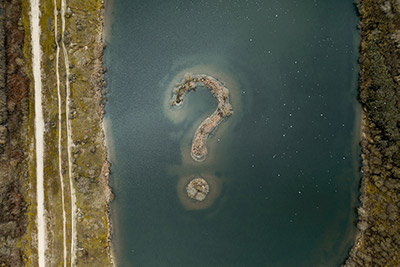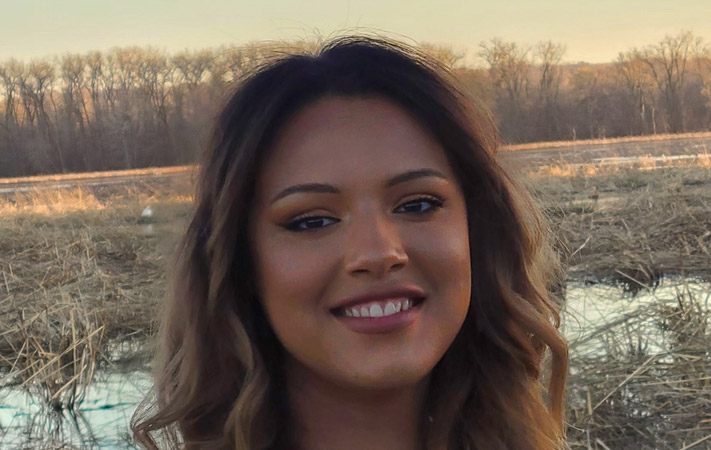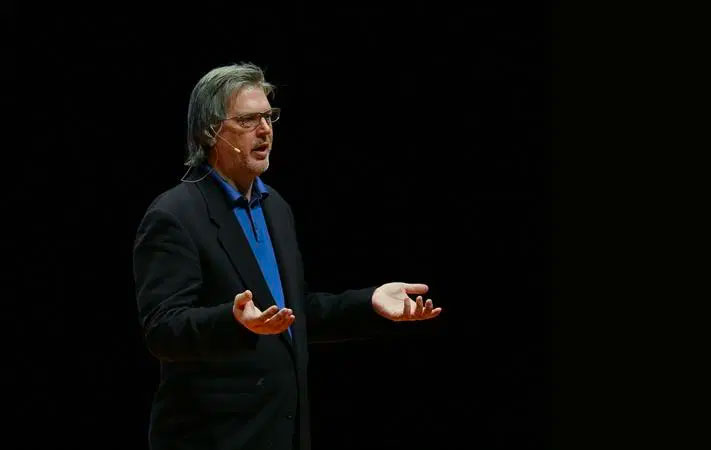Money doesn’t buy happiness
For at least a century, we have measured success using strictly economic terms. We look at GDP, jobs, income, employment, profits, and stock prices to determine if our nation had a good or a bad year.
Yet in an advanced economy that on average easily provides enough for everyone, these metrics have little relevance for how people’s lives really are. Many have more than what is needed to be happy, while others can’t make ends meet. And often, it isn’t even money that decides if we feel good or bad.
Our project aims at changing this notion by introducing a simple question back into the conversation: HOW ARE WE DOING?
Contrary to many other well-being metrics that have been tried, we are not using a top-down or outside-in perspective, but base almost everything on people’s perceptions about their own lives. By asking real people, getting their honest views about their lives, we aim at providing input to politics, advocacy groups, and NGOs – and to everyone interested in making life better for people in today’s difficult times.
We are currently rolling out a first trial in Wisconsin and are in the process of finding a European country for a pilot.
About our approach

Why Do we need new metrics ?
Looking beyond economic statistics becomes essential in turbulent times like today where growth is no longer the norm. We need to understand how the people in our country truly are, so we can improve their well-being even in the absence of economic growth.

What does matter to People ?
The key elements of a good life are rarely economic, once key needs are met. Feeling good about key qualitative aspects in our lives, such as purpose and meaning, our health, or our relationships, is much more relevant

How to use theSE metrics ?
The “How are We?” project plans to establish a widely accepted standard for obtaining relevant data on how people feel, using a non-partisan and participative approach. A first pilot is currently underway
KEy project STeps
Concept (DONE)
Over the past years, a lot of work went into the analysis of past well-being metrics efforts, and the concept of developing our own approach. Our documentation is open-source and available for download here.
TESTING (DONE)
We have tested and optimized our questionnaire by conducting almost 100 qualitative interviews with people from all walks of life, from advocacy groups, and with policymakers to ensure we capture what truly matters.
PILOT (COMPLETED)
We have completed a first pilot in Wisconsin, where we successfully tested our approach. We are now further improving the HowAreWe methodss and working on larger rollouts for 2022 and 2023. Read the summary!
Q&A
Why should I take the survey?
Taking the HowAreWe survey gives you the opportunity to share your view about what matters to you, completely anonymously. It is a way to make your voice heard and provide direct input into the decision-making of leaders in government, non-profit organizations and other institutions. It also gives you an idea of where you stand compared to others.
Where Do MY ANSWERS GO?
Your answers are completely anonymous and will not be linked to your name, email address or phone number. They are stored in a secure online database where it is technically impossible to track them back to you once you hit the “submit” button. On top of that, we have designed our systems in a way that it would even be impossible for the HowAreWe team to reconnect your answers with you.
What is the most important deliverable of the "How Are We" project?
The key result is not just another survey that creates data, but rather a fundamental change in how “a good life” is perceived. While economic security is an important contributor, after a certain income level, it doesn’t add anything to our happiness. We want to identify the key elements where decision-makers and institutions can improve people’s lives the most, shifting the public discourse and action on a local and regional level.
What will you do with my responses?
Your survey answers anonymously go into our database where they are becoming part of a large pool. Together they provide a picture of how the participants in our survey are doing. These results will be available to communities and their leaders, but also to anyone with an interest in improving people’s lives. The results will also be available to you.
How is "HOW ARE WE" different from other initiatives measuring well-being?
Most well-being projects use readily available statistical data that says something “about people”. In contrast, our approach is based on asking “how are you?”, providing the opportunity to share what really matters. This began with the design phase, where we conducted numerous interviews exploring the most important factors of well-being for people from all walks of life. These interviews allowed us to figure out what questions needed to be asked to best understand personal well-being. Second, many of the other well-being metrics take a lens of “how things should be” that might not match the reality of many. This reduces the widespread acceptance by people who have differing opinions.
What is the motivation behind your initiative?
Economic growth has already been challenged twice in the 21st century (in 2008/09 and 2020/21), and our research suggests that crisis situations will become even more frequent in the future. If we want to make sure to still have good lives, we urgently need different ways of talking about HOW WE ARE.
Do you have any political affiliation?
Our project is non-political, trying to look at people and their lives the way they are, not how we want to see them.
Who funds your work?
Our work is funded by donations from individuals and from institutional grants. None of our funders have any say on the direction or content of our work, and we do not accept grants that include such instructions. In other words: we welcome all support provided based on what we are doing, but we don’t do paid work.
How can I help?
There are many ways to help our project. By providing feedback to our approach, both overall, but also specifically on our questionnaire. Please answer our draft questionnaire and provide us feedback about it. All data is treated confidentially. You may also help in preparing the rollout as a volunteer or by donating to our effort.
Our Team
HOW ARE WE is a joint initiative of the Institute for the Study of Energy and Our Future (ISEOF) and the Institute for Integrated Economic Research (IIER). We are currently building a much larger coalition of partners to support this effort.

Danadra Jean-Noel
Program Director
Danadra is the Program Director for the How Are We pilot phase, responsible for a successful launch in Colorado. She holds a B.A. degree in Sociology from Georgia State University and an M.P.A in International Development and Economics from Clark Atlanta University.
Prior to joining our team, Danadra was a Senior Supervisor of National IT Operations at the Federal Reserve Bank of Kansas City. She led key programs at the Kansas Fed and teams throughout the Federal Reserve System. She also worked in multiple roles internationally in Haiti and Tanzania for various non-profit and civic organizations.

Dan L. Witters
Steering Committee
Nate Hagens holds a PhD in Natural Resources from the University of Vermont and a Masters Degree in Finance with Honors from the University of Chicago. Previously he was President of Sanctuary Asset Management and a Vice President at the investment firms Salomon Brothers and Lehman Brothers. He served on the Board of Post Carbon Institute (PCI) and the Institute for the Study of Energy and Our Future (ISEOF), parent of The Oil Drum, one of the most popular websites for analysis and discussion of global energy issues, currently engaged with energy, systems literacy and education.

Hannes Kunz
Steering Committee
Hannes Kunz holds Masters degrees in Law and Economics from the University of Zurich, and a PhD in Economics from St. Gallen University in Switzerland. Before founding IIER, he worked as a senior executive in a number of industries and as a partner in international management consulting companies with assignments in Europe, the Americas and in Asia. His research focus lies on finance, debt and on energy delivery systems.
Hannes has served on the board of various non-profit organizations, and is also a board member of the Institute for the Study of Energy and Our Future (ISEOF).

Makayla Moses
Researcher
Makayla Moses is working as a researcher with our project. She is graduated from the University of Minnesota – Twin Cities in Anthropology and Sociology. She is responsible for many aspects of our project, ranging from outreach to data analysis and social media activities.

Nate Hagens
Steering Committee
Nate Hagens holds a PhD in Natural Resources from the University of Vermont and a Masters Degree in Finance with Honors from the University of Chicago. Previously he was President of Sanctuary Asset Management and a Vice President at the investment firms Salomon Brothers and Lehman Brothers. He served on the Board of Post Carbon Institute (PCI) and the Institute for the Study of Energy and Our Future (ISEOF), parent of The Oil Drum, one of the most popular websites for analysis and discussion of global energy issues, currently engaged with energy, systems literacy and education.

SARAH PARK
Steering Committee
Sarah brings leadership experience across multiple sectors, including as a Director at one of the oldest community foundations in the US and as a senior ground-floor team member of a successful IT start-up scaled to 5 continents. Sarah has served on numerous public sector boards, advisory groups and strategic planning teams, from governmental to diverse social justice, education and wellness focused NGO’s. She holds a Masters in Education.
As Community Systems Lead at the Wend Collective, Sarah works to bring to life a world more oriented to equity and wellness for all through systems change centered in and driven by community, context and our interconnectedness.

Erin Hutchinson
Bayfield Outreach
J Erin Hutchinson’s career has a common thread of passion driven launches of companies and organizations. After leaving home at 16, she launched several small businesses (from a video store chain to coffee shop to retail stores) and two nonprofits all by the age of 21. This experience led her to launching a creative agency, Narrative Shift, that primarily works with healthcare tech & biotech startups to help them craft a corporate narrative that generates excitement & curiosity amongst their target customers.
Erin is passionate about HowAreWe and has offered to become our local face in Bayfield County, helping us spread the word about our project.
Mary SCHLaEFER
Director Outreach
coming soon
-
Support How Are We
All donations made via this website will be fully used for funding the How Are We project.
$65 donated


